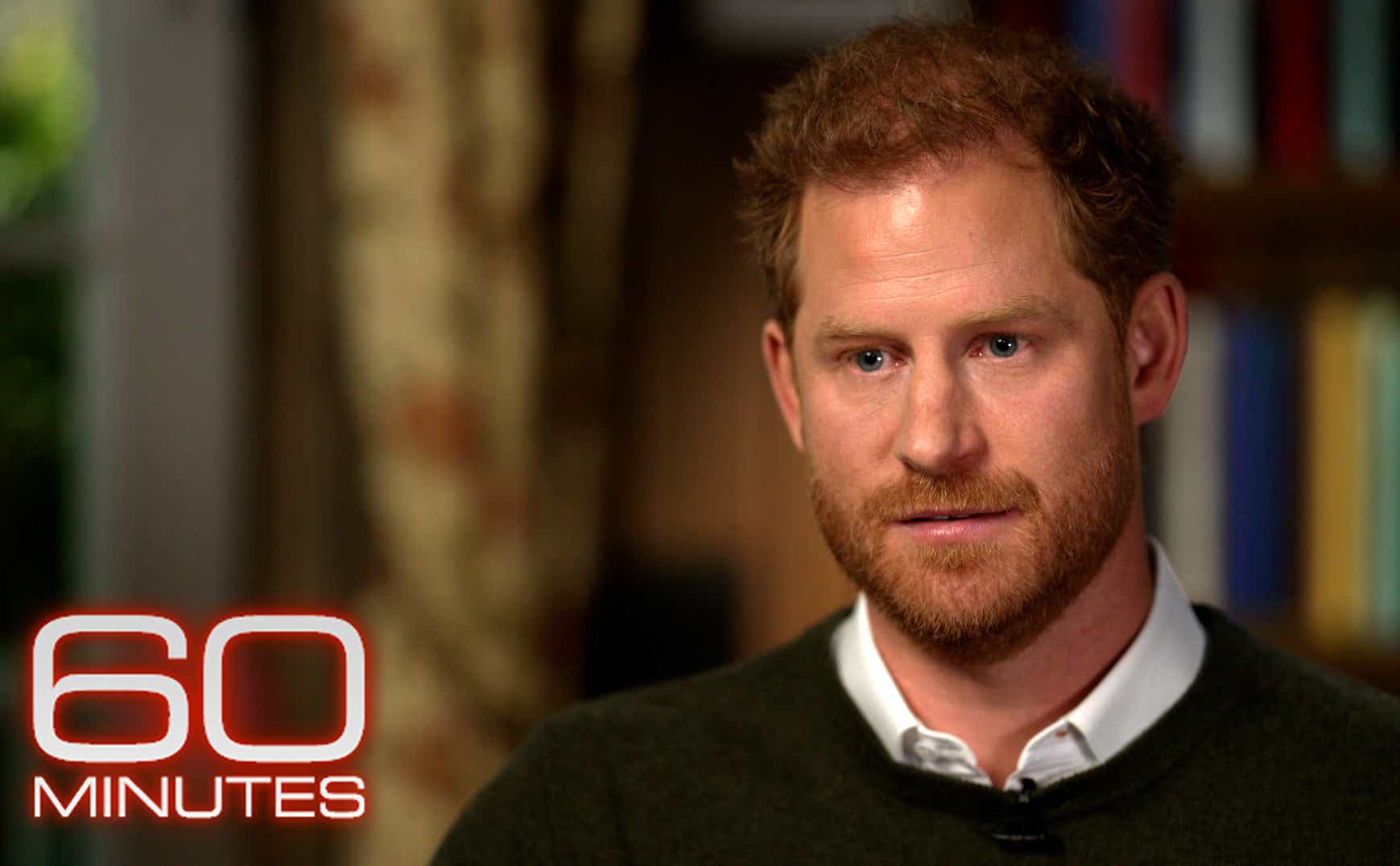Prince Harry just gave two major interviews ahead of his memoir's release, and he spared (sorry) no detail.
Speaking to Anderson Cooper for CBS and Tom Bradby for Britain's ITV, Harry explained his issues with drink and drugs, elaborated on claims he made in his recent Netflix show Harry and Meghan regarding the British press, and offered some bold opinions about his stepmother, the Queen Consort Camilla.
Taking on the British press
During Harry's interview with ITV, which also features clips from his forthcoming memoir, Spare, he described the relationship between the Palace and the British media — which he called an "antagonist" out to "create as much conflict as possible."
“The saddest part of that is certain members of my family and the people that work for them are complicit in that conflict,” he said.
It's common to see tabloid stories about the royal family attributed to an anonymous "royal source." Harry explained that this is part of a consistent pattern of the Palace "leaking" and "planting" stories, as opposed to some "unknown person."
"It is the palace specifically briefing the press, but covering their tracks by being unnamed,” he explained.
Harry said that he thinks that's “pretty shocking to people. Especially when you realize how many palace sources, palace insiders, senior palace officials, how many quotes are being attributed to those people, some of the most heinous, horrible things have been said about me and my wife, completely condoned by the palace because it’s coming from the palace, and those journalists have literally been spoon-fed that narrative without ever coming to us, without ever seeing or questioning the other side.”
Harry's drinking and drug use
Speaking to Anderson Cooper for CBS, Harry explained that the noise coming from the press following his mother Princess Diana's death contributed to his use of unhealthy coping mechanisms to numb the pain.
“It was obvious to us as kids the British press’ part in our mother’s misery and I had a lot of anger inside of me that luckily, I never expressed to anybody,” he said. “But I resorted to drinking heavily. Because I wanted to numb the feeling, or I wanted to distract myself from how … whatever I was thinking. And I would, you know, resort to drugs as well.”
Harry admitted that he had used pot and cocaine during this grieving process, and that during his late 20s he felt "hopeless" and "lost."
"There was this weight on my chest that I felt for so many years that I was never able to cry," he said. "So I was constantly trying to find a way to cry, but-- in even sitting on my sofa and going over as many memories as I could muster up about my mum. And sometimes I watched videos online."
"Of your mom?" asked Cooper.
"Of my mum," Harry replied.
In his memoir, Harry reveals that neither he nor Prince William was satisfied with the results of a 2006 investigation by London's Metropolitan Police that concluded that the man who'd been driving the car the night of Diana's fatal crash had been drinking and that it was a "tragic accident."
Living life "in adrenaline"
Harry told Cooper that from hearing the news that Diana was dead aged 12, he'd been living his life "in adrenaline." In Spare, he writes that though he'd served as a British soldier in Afghanistan for years, for him, the real fight started in August 1997. He told Cooper that he'd been fighting "himself," but that joining the army saved him in many ways.
It "got me out of the spotlight from the-- from the U.K. press," Harry explained. "I was able to focus on a purpose larger than myself, to be wearing the same uniform as everybody else, to feel normal for the first time in my life. And accomplish some of the biggest challenges that I ever had. You know, I was training to become an Apache helicopter pilot. You don't get a pass for being a prince."
Camilla's "dangerous" relationship with the press
Cooper asked Harry to explain what he meant when he wrote in Spare that his stepmother, the Queen Consort Camilla, was "dangerous," and that he believed she might be less dangerous if she was happy.
Harry said that Camilla was a liability due to her need to rehabilitate her own image after being cast as the "villain" in the British press after being cast as the third person in Charles and Diana's marriage.
"That made her dangerous because of the connections that she was forging within the British press," Harry explained. "And there was open willingness on both sides to trade of information. And with a family built on hierarchy, and with her, on the way to being Queen consort, there was gonna be people or bodies left in the street because of that."
Harry contends that this motivated Camilla and even King Charles to use himself and his brother to improve their own coverage — and that Camilla "sacrificed me on her personal P.R. altar."
"If you are led to believe, as a member of the family, that being on the front page, having positive headlines, positive stories written about you, is going to improve your reputation or increase the chances of you being accepted as monarch by the British public, then that's what you're gonna do," he said.









